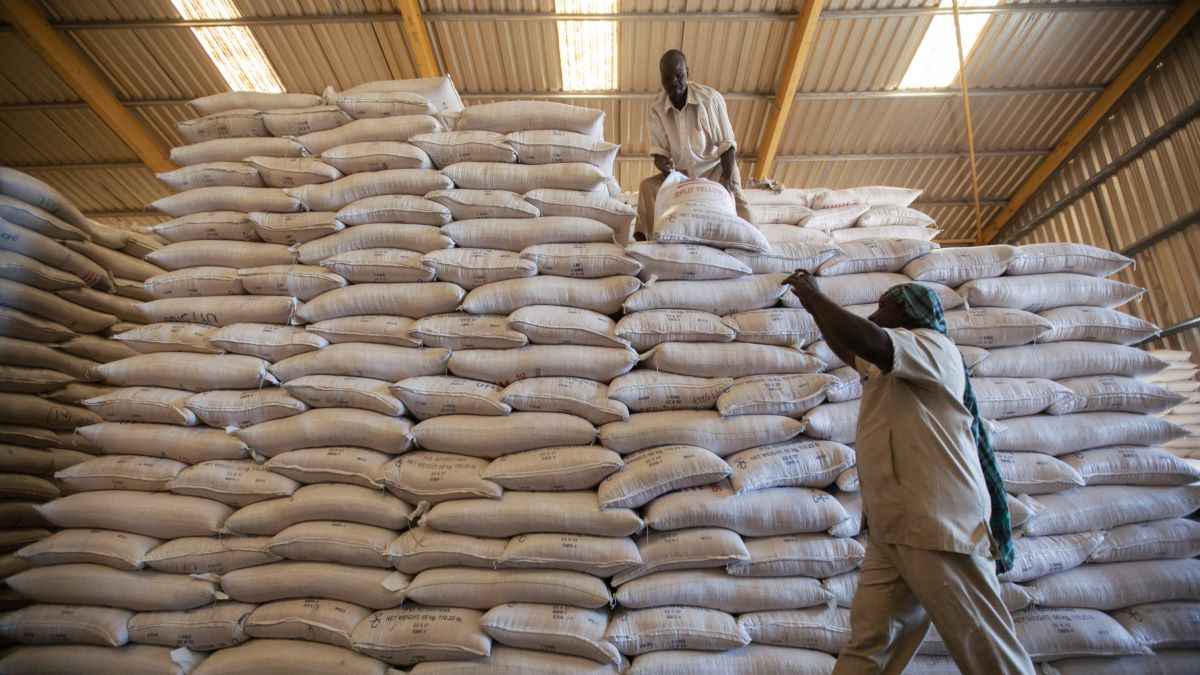A new report spotlights the solutions trade can offer to address the immediate challenges of hunger while enabling sustainable and resilient food systems in the long run.
© UN Photo/Albert González Farran | North Darfur, Sudan.
Rising hunger calls for targeted trade policies to stabilize food prices and improve access to nutrition.
Trade reduces vulnerabilities to risks like drought and conflict, supporting economic resilience.
UN Trade and Development underscores the need for action ranging from reducing trade barriers to facilitating the agricultural exports of vulnerable economies.
Global food insecurity has surged in recent years, reversing decades of progress in the fight against hunger.
A new report released by UN Trade and Development (UNCTAD) on 12 December notes that over 280 million people face acute food insecurity, an emergency that threatens lives.
Around 733 million people – up by 150 million since 2019 – struggle with chronic food insecurity, meaning they consistently lack access to safe, nutritious food.
Without urgent and coordinated global action, 582 million individuals could experience chronic hunger by 2030.
Need to tackle root causes of hunger
The main causes of acute food insecurity are socioeconomic shocks, poverty and inequality, armed conflict and the growing impact of climate change.
Together, these factors hinder food production, disrupt supply chains and restrict access to affordable nutrition.
How trade can alleviate food insecurity
Trade plays a vital role in increasing food availability, lowering prices and improving access to diverse and nutritious diets. It also helps countries withstand shocks like droughts and conflicts. For instance, African nations rely on imports for 30% of their cereal needs, ensuring a steady food supply despite regional disruptions.
The Black Sea Initiative demonstrated the importance of trade during the war in Ukraine. The UN and Türkiye brokered a deal to facilitate food and fertilizer exports from Ukraine and Russia, which reduced global food price volatility and lowered the FAO Food Price Index by 23%.
Double-edged impact of trade on food security
While trade provides opportunities to address food insecurity, it also poses challenges, particularly to countries dependent on agricultural imports.
Tariffs and non-tariff measures, such as sanitary standards, can increase food costs by up to 20%, making it less accessible.
Over-reliance on imports leaves countries vulnerable to price spikes or supply chain disruptions, as seen in Yemen and Haiti, where 93% and 86% of cereal needs, respectively, are met through imports.
Trade policies to bolster food security
UNCTAD highlights several measures to make trade more effective in combating hunger:
- Reduce tariffs and non-tariff measures to lower trade costs and improve food affordability.
- Strengthen regional food trade and cooperation to build resilience against global disruptions.
- Boost export capacity of vulnerable economies through technical assistance to meet international standards.
Additionally, UNCTAD proposes a short-term export facilitation mechanism to combat severe food insecurity, which seeks to enhance countries’ export capabilities and can be discussed at forums like the World Trade Organization’s ministerial conferences.
The rise in hunger requires urgent global attention. Trade offers a pathway to resilience and improved food security, but it must be complemented by targeted policies to ensure no one is left behind. UNCTAD’s recommendations provide a framework for action to address one of the most pressing challenges of our time.

